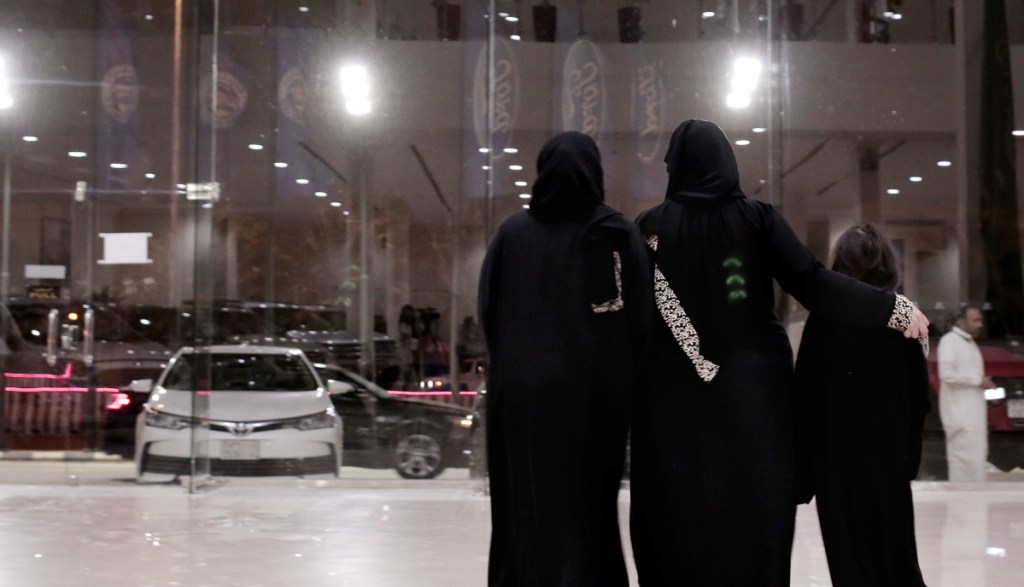RIYADH, Saudi Arabia — Cradling her 4-month-old daughter, Nour Obeid scans the car showroom and heads to the mid-sized SUVs.
In the past, a woman looking to buy a car in Saudi Arabia would focus on the features in the back, but Obeid is checking out the driver’s seat, picturing herself doing grocery store runs or school drop-offs.
This Sunday, the kingdom will lift the world’s only ban on women driving, a milestone for women who have had to rely on drivers, male relatives, taxis and ride-hailing services to get to work, go shopping and get around.
The move could help boost the Saudi economy by ensuring stronger female participation in the workforce, meaning increased household incomes.
Car companies also see opportunity in this country of 20 million people, half of them female. Ahead of the ban being lifted, they’ve put Saudi saleswomen on showroom floors and targeted potential new drivers with advertising and social media marketing. Earlier this year, Ford sponsored a driving experience specifically for women in the city of Jiddah.
Saudi Arabia is the largest automobile market in the Middle East, with at least 405,000 cars expected to be sold this year. That’s down significantly from a few years ago, and the cost of buying a new car has gone up with the introduction of a value-added tax.
Still, car sales are expected to increase between six and 10 percent once women start driving, the chairman of the national committee for cars at the Council of Saudi Chambers told the daily Saudi Gazette.
The government recently began allowing women to sell cars as well. Sales jobs had previously been reserved for men in the highly conservative country, where unrelated men and women cannot freely mix.
Earlier this month, Saudi Arabia issued its first driver’s licenses to 10 women who already had licenses from other countries. Since then, dozens more have been licensed. None can drive until the ban is officially lifted.
The overwhelming majority of women in Saudi Arabia still don’t have licenses. Many haven’t had a chance to take the gender-segregated driving courses that were first offered to women only a few months ago. There’s also a waitlist of several months for a course at Princess Nora University in Riyadh. And the classes can be costly, running several hundred dollars.
Others already own cars driven by chauffeurs and are in no rush to drive themselves.
Obeid, who already has a driver’s license from Jordan, plans to obtain a Saudi license.
Copy the Story LinkSend questions/comments to the editors.



Success. Please wait for the page to reload. If the page does not reload within 5 seconds, please refresh the page.
Enter your email and password to access comments.
Hi, to comment on stories you must . This profile is in addition to your subscription and website login.
Already have a commenting profile? .
Invalid username/password.
Please check your email to confirm and complete your registration.
Only subscribers are eligible to post comments. Please subscribe or login first for digital access. Here’s why.
Use the form below to reset your password. When you've submitted your account email, we will send an email with a reset code.